Kate Quigley Coral, Dr Kate Quigley Aims
Symbiodinium acquisition does not differ between coral life stages in the wild2 3 Kate M. They are testing if the offspring are more heat-tolerant than their central Reef parents.
Kates research focuses on investigating heat tolerance in the building blocks of the Reef.
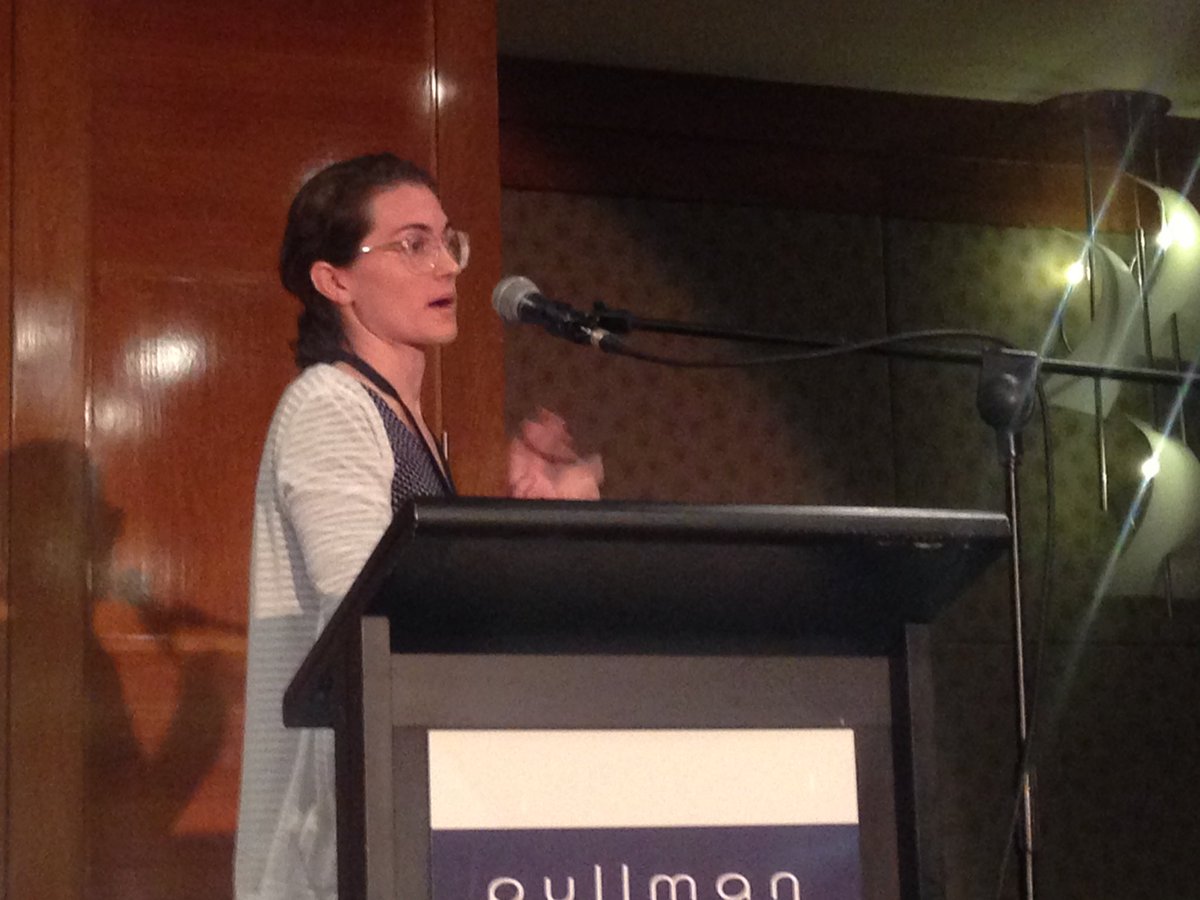
Kate quigley coral. The past two years have seen unprecedented coral bleaching on the GBR but the consequences on biodiversity and genetic diversity are not yet known. Quigley K Torda G Bay L 2018 The use of juveniles or larvae settled in the field in coral restoration. 1 Has bleaching resulted in a loss of genetic diversity in three coral species.
Verified email at myjcueduau. Dr Kate Quigley is the queen of the super corals. FACILITATING THE SPREAD OF ADAPTIVE VARIATION FOR CORAL REEF RESTORATIONKate M Quigley a Line K Bay a and Madeleine van Oppen a ba Aust.
Coral host and reef ecosystem in general relatively little is known about the molecular mechanisms that underpin that symbioses and control of Symbiodinium diversity and abundance in-hospite. About 25 strains of coral are being crossbred with the same or different species. Meet coral geneticist Dr Kate Quigley.
Dr Carly Kenkel right and Kate Quigley left have returned to the islands Hazard Bay to collect colonies they tagged 12 months ago. Tonight on Reef Live Kate and her team will cross-breed corals from the far northern Great Barrier Reef with those from the cooler central Reef in the National Sea Simulator. Bioenergetic modeling combined with physiological measurements of coral juveniles surface area and Symbiodiniaceae cell densities identified key periods of carbon limitation and nitrogen assimilation.
Global change biology symbiosis genomics coral reproduction and biology. Dr Kate Quigley AIMS. Symbiodinium acquisition does not differ between coral life stages in the wild.
Kate is a postdoc in the lab of Madeleine van Oppen and Line Bay at Australian Institute of Marine Science Australia investigating the genomic mechanisms associated with. So they can withstand higher temperatures says Kate Quigley a researcher on reef restoration at Aims. Quigley Australian Institute of Marine Science PMB 3 Townsville QLD 4810 Australia.
Kate Quigley is part of an Australian collaboration that aims to create corals that can survive warming ocean waters. 1 1 The use of larvae or recruits in coral restoration initiatives. This project will address the following questions.
National Oceanic and Atmospheric Administration NOAA. Quigley Australian Institute of Marine Science PMB 3 Townsville Queensland 4810 Australia. Australian Institute of Marine Sciences.
Kate Quigley is first author on Assessing the role of historical temperature regime and algal symbionts on the heat tolerance of coral juveniles published in BIO. Breeding the host coral for good heat tolerance can get us about a. Kate Green and Kate Quigley Australian Institute of Marine Science.
Sort by citations Sort by year Sort by title. Kates PhD will focus on what is driving the specificity of this. Quigley K Baker A Coffroth M Willis B van Oppen M 2018 Chapter 6.
Kate continued on to a PhD at James Cook University and the Australian Institute of Marine Sciences where she is currently using quantitative genetics to understand the coral-dinoflagellate symbiosis. During my PhD I used a quantitative genetic framework to quantify the extent to which the coral host determines the community structure of their Symbiodinium community in the early life stages of corals across different symbiont transmission modes and host reproductive strategies Quigley et al. Articles Cited by Public access.
Bleaching resistance and the role of algal. Interpopulation breeding created significantly greater genetic diversity across the coral genome compared to breeding between populations and maintained diversity in key regions associated with heat tolerance. Quigley 12 Gergely 12Torda Line K.
Molecular and environmental basis for Symbiodinium specificity in the coral dinoflagellate association. 2017a Quigley et al.

The Active Spread Of Adaptive Variation For Reef Resilience Quigley 2019 Ecology And Evolution Wiley Online Library

Reef Restoration In A Changing Ocean Kate Quigley Tedxtownsville Youtube
Https Bio Biologists Org Content Biolopen 9 1 Bio050427 Full Pdf

Kate Quigley Assissted Gene Flow Facilitating The Spread Of Adaptation For Coral Restoration Youtube
Ms Kate Quigley Symbiosis Genomics
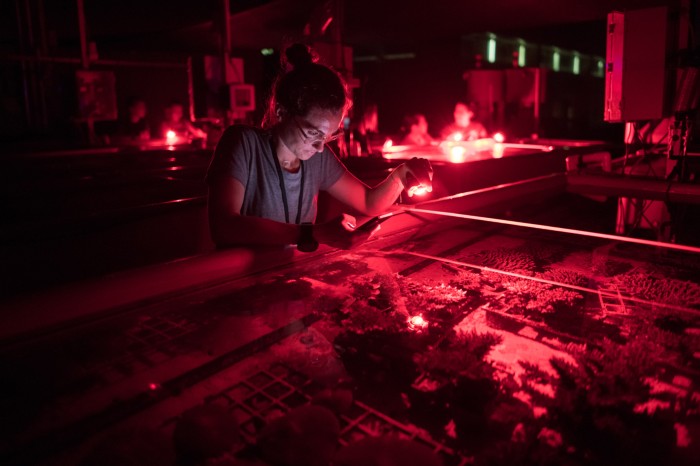
Breeding Heat Tolerant Corals To Save The Great Barrier Reef
Queensland Science 2020 Qwisp Kate Quigley Final Caption Mp4 Facebook
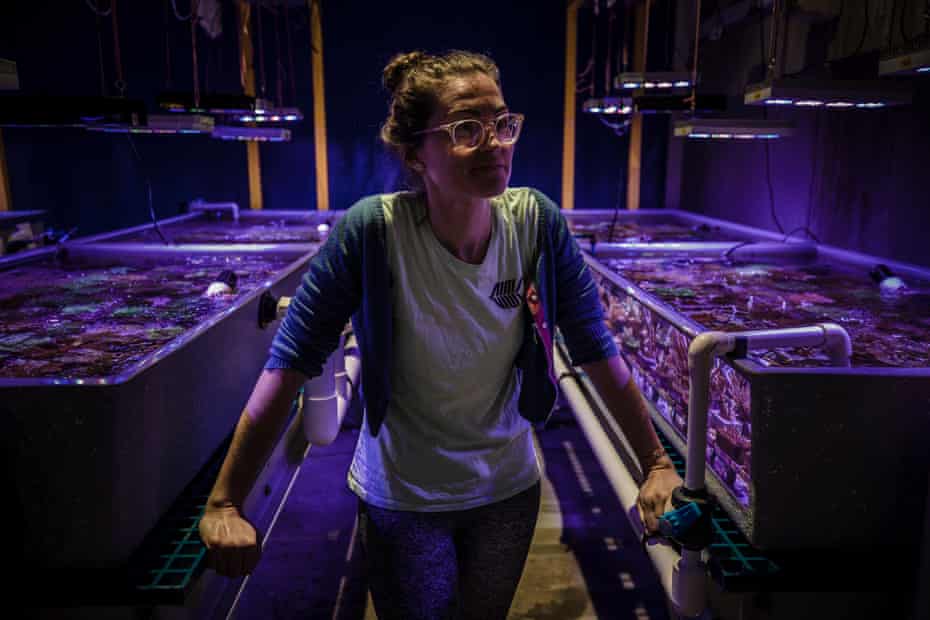
Crossbreeding Corals The Hunt For Ways To Heal The Great Barrier Reef Great Barrier Reef The Guardian
Great Barrier Reef Coral Survive Heat Test Cairns Post

Coral Bleaching Tests Abc News Australian Broadcasting Corporation

Nature Picture Library Biologist Dr Kate Quigley Looking At Gravid Corals Prior To Spawning Freshly Collected From Great Barrier Reef Research Into Spatial And Temporal Drivers Of Thermal Tolerance In Coral Species

Kate Quigley Postdoctoral Research Fellow Phd Marine Molecular Ecology A Healthy And Resilient Gbr Program Aims

Line K Bay On Twitter Kate Quigley La Cientifica Uses Modelling To Elegantly Make The Case That Assisted Gene Flow Can Help Corals Adapt To Climate Change Restorethereef2018 Aims Gov Au Https T Co Frlgbqfnx4

Suston Magazine Great Barrier Reef Climate Adaptation

Dr Kate Quigley La Cientifica Twitter

Kate M Quigley Arc Centre Of Excellence For Coral Reef Studies
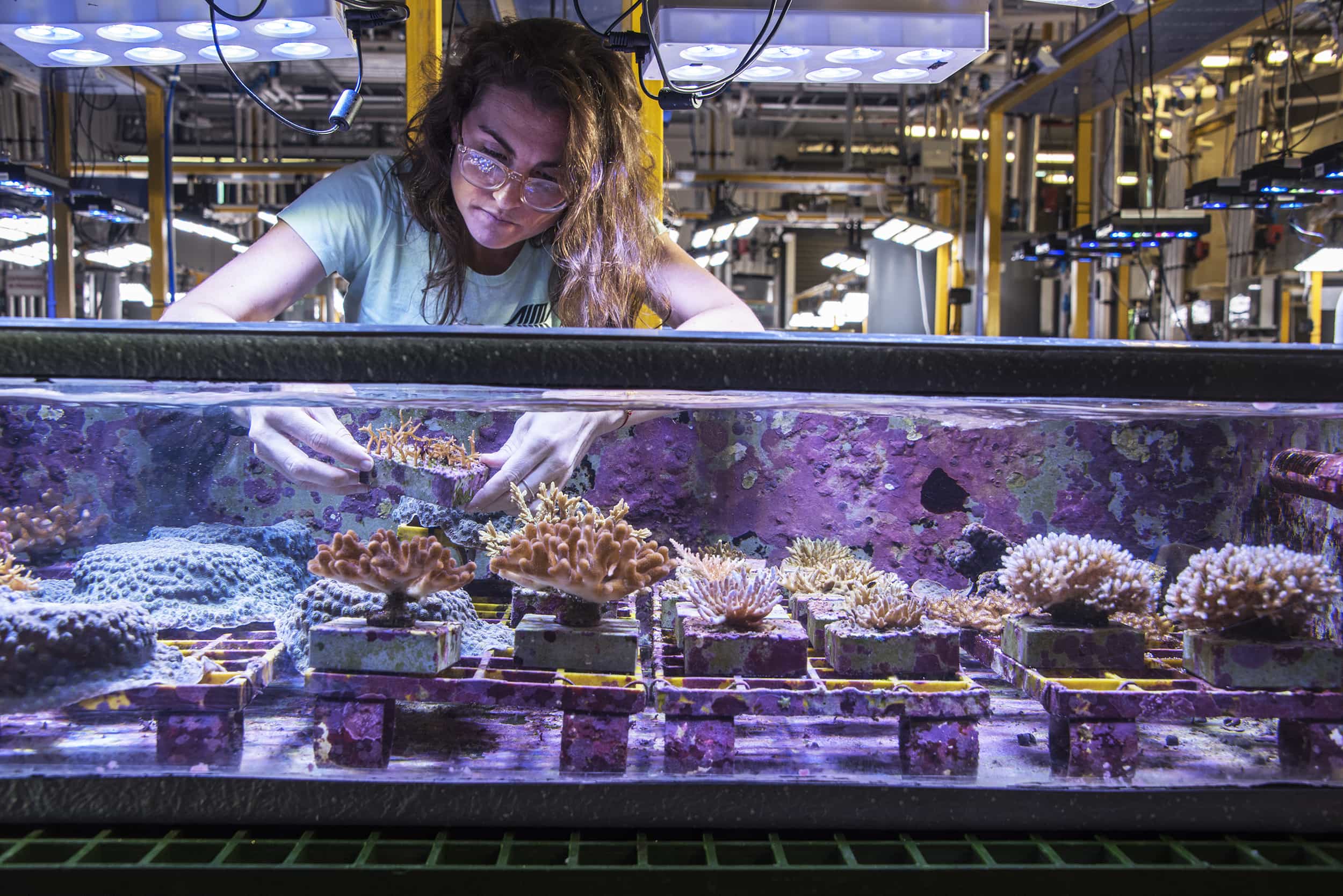
What It Will Take To Rescue The Great Barrier Reef

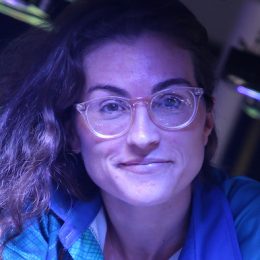
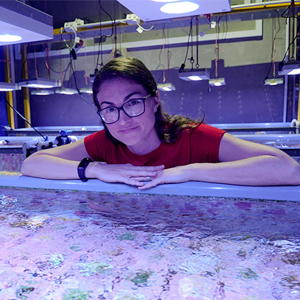



Post a Comment
Post a Comment